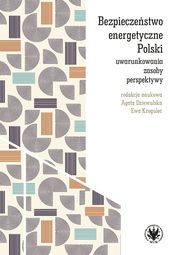Information about a product
| Edition: | 1 |
| Place and year of publication: | Warszawa 2020 |
| Publication language: | polski |
| ISBN/ISSN: | 978-83-235-4122-6 |
| EAN: | 9788323541226 |
| Number of page: | 290 |
| Binding: | Miękka ze skrzydełkami |
| Format: | 13,5x20,5 cm |
| Weight: | 340 g |
| Publication type: | Praca naukowa |
| DOI: | https://doi.org/10.31338/uw.9788323541301 |
The distorted lens of irony and self-mockery. A gender comparison
This book presents three psychological experiments on men and women. The goal was to establish how gender, self-esteem and anxiety impact the production and perception of verbal irony and self-mockery. Further, the research analyzes the role of non-verbal language in self-identification. The experiments show that irony (‘blame by praise’ or ‘praise by blame’) are not only hinged on two linguistic levels: literal and implied; but also on gender. Though the grammatical form of the Polish word irony (“ironia”) is feminine, we find it is used more by men. Men produce more irony than women and use it in a more playful way. For women, irony is associated with spitefulness. Higher self-esteem and lower anxiety are also predictors of the use of self-mockery. The authors place a special focus on the importance of emotions in irony use and processing. The results of this research allow for the presentation of a new model of irony as a defensive mechanism for self-regulation of emotion.
Keywords: irony, self-mockery, sex, gender, stereotype, self-esteem, anxiety, humour, emotions.
See other publications in the series: Współczesne problemy psychologii »
This book presents three psychological experiments on men and women. The goal was to establish how gender, self-esteem and anxiety impact the production and perception of verbal irony and self-mockery. Further, the research analyzes the role of non-verbal language in self-identification. The experiments show that irony (‘blame by praise’ or ‘praise by blame’) are not only hinged on two linguistic levels: literal and implied; but also on gender. Though the grammatical form of the Polish word irony (“ironia”) is feminine, we find it is used more by men. Men produce more irony than women and use it in a more playful way. For women, irony is associated with spitefulness. Higher self-esteem and lower anxiety are also predictors of the use of self-mockery. The authors place a special focus on the importance of emotions in irony use and processing. The results of this research allow for the presentation of a new model of irony as a defensive mechanism for self-regulation of emotion.
Keywords: irony, self-mockery, sex, gender, stereotype, self-esteem, anxiety, humour, emotions.
See other publications in the series: Współczesne problemy psychologii »
Zobacz również
Polecane



Liber Romani. Studia ofiarowane Romanowi Michałowskiemu w siedemdziesiątą rocznicę urodzin55,00 zł
49,50 zł
Details
- An anniversary publication for the renowned medieval historian Professor Roman Michałowski. The articles collected in the volume address the widely understood issues of medieval political and religious culture as well as the history of the Church

Humanizm między Wschodem a Zachodem29,00 zł
26,10 zł
Details
- The publication encompasses European literature accentuating Polish literary activity. The articles pertain to the cultural dialogue between Eastern (Greek) and Western (Latin) cultures, the dialogue in Southern Slavdom via the Habsburg Serb centre

Wyobrażenia polskości. Sztuki plastyczne II Rzeczpospolitej w perspektywie społecznej historii kultury49,00 zł
44,10 zł
Details
- An interdisciplinary study in the field of the social history of culture, devoted to the “images of Polishness” which functioned in the fine arts of the Second Polish Republic. The author attempts to reinterpret the works of, among others, Wojciech Kossak

Update Required
To play the media you will need to either update your browser to a recent version or update your Flash plugin.
















